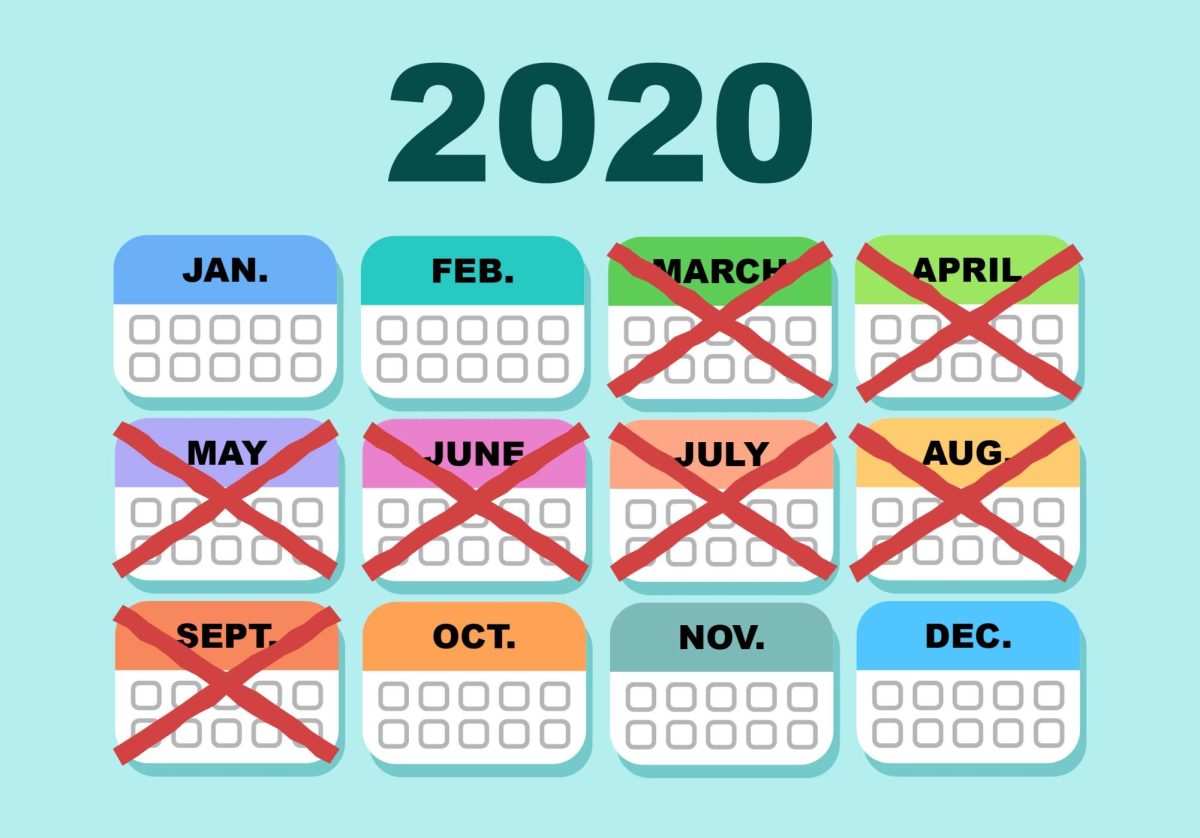Ads have always been a terrible nuisance. Maybe this is my advanced age speaking, but it seems like it’s only recently they have become particularly aggravating. They are literally everywhere. When you think about it, it really is quite difficult to exist in a space with zero advertisements.
There are billboards lining every highway and our phones are riddled with them, but ads nose their way into our personal space as well. Logos and brand names are emblazoned on virtually every product, from appliances to electronics to food, announcing themselves as something you have purchased and will hopefully purchase again.
Any visual cue harkening back to some company is an advertisement. When you start to look at every little logo as an ad, you realize how crazy their omnipresence is. When you keep their purpose — manipulating you to consume their product — in mind, the dubious ethical implications come to the forefront.
Capitalism, which I have no great love for, is all about competition. Making your product look like the best available is one of the principal strategies marketers employ. This motivates every decision made in marketing a product, from appearance to price, and it’s what turns purchasing decisions into a confusing conundrum for consumers.
“People have limited ability to process information. There’s only so much you can hold in your head at any one time,” said WIlliam Hedgcock, an associate professor of marketing at the Carlson School of Management. “Instead of considering all the attributes that they are concerned about, they’ll consider what they think of as the most important or the ones that come to mind first.”
I suppose that’s why you don’t typically see ads for the store brand. The cheaper price of basic products is the main draw, so scrupulous consumers gravitate toward them by default.
“Another big phenomenon is that people are not that good at making absolute judgments; they tend to make relative judgments or comparisons,” Hedgcock said. “If you think of something as being expensive, it’s expensive relative to something else.”
Other brands need to push their more specialized and expensive products, and that’s when a whole bunch of other variables enter the equation. This is why brands try to beef up their image and attempt to make themselves look desirable to entice you.
“Successful brands, I think, are brands where there are attributes or ideas that come to mind really easily,” Hedgcock said. “You think of some iconic brands like Apple. If you think of Apple or some other technology company, there are these positive things that come to mind with Apple as far as ease of use and creativity and being unique.”
Companies like Apple have built up enough of an image that the brand itself can pull its own weight in advertising. This is why Apple ads are so vacuous and lame. For years, consumers have been put off by the flashy, wordless video advertisements for whatever new piece of metal and plastic the company has dispensed. They know people are going to shell out no matter what, so all the marketers have to do is maintain the image.
Of course, not every company has that kind of brand integrity. Most marketers have to get more creative, so when ads for more niche products come up, they are more informative on what they’re actually selling.
For some reason, I see a ton of Mailchimp ads when I watch Hulu, which is particularly grating. Mailchimp is a marketing platform, so they market marketing tactics to marketers.
Intuit Mailchimp’s “Clustomer” ad is brazenly clear about what marketing is all about: manipulating people. This ad, which plays on repeat on my TV, advertises the product’s efficiency at sorting people and targeting them for email ads based on their data. It exposes the chilling fact that companies are actively engaging in the orchestration of consumer behavior.
“If you’re out searching for information, and that information gets tied to other purchasing behavior and you didn’t know it, people might see that as unethical and something that we might want to consider regulating,” Hedgcock said.
Companies try to put themselves in a positive light with philanthropy, advocacy work and social initiatives, but of course it’s all about the money. Companies do everything for their bottom line. They might begin with values in mind, but in capitalism, everything is ultimately motivated by profit.
Deep down, I think I always suspected this was the case, and it’s why I’ve always felt myself bristle at the sight of an ad. They try to sell to people, and there’s always some coercion involved in that.
But as the digital landscape has developed, I’ve seen ads evolve into calculated cognitive attacks, using my habits and data to more effectively force their products into my psyche. This has made it clear ads are not just morally questionable but fundamentally unethical. Companies will go to whatever lengths they can, including invading privacy, to satisfy their ends.
The worst offenders are the low-effort digital ads that seem like they were made on an assembly line, specially tailored to my preferences in the most efficient way possible.
Companies have deployed AI-generated ads as a time- and cost-cutting measure, and they are just as schlocky as you can imagine. Shein’s constant, unskippable vertically-aligned YouTube ads exemplify this as some of the most intrusive.
Unimaginative, jarring advertisements, sometimes narrated with robotic text-to-speech voiceovers, have become a mainstay on every digital platform. They’re used as a tool to get consumer engagement with as little expenditure as possible. They are blithely insincere cash-grabs, and I hate them terribly.
I’ve come to feel this way about all ads. I don’t think it’s unfair to extrapolate profit-driven intentions to every single one of them, and with the drastic cost-of-living increase in recent years, those intentions come off as especially nefarious. I feel no enjoyment or intrigue when I see them. I look to the skip button, my phone or simply away.
In my ideal utopia, ads don’t exist. My privacy is safeguarded, and my decisions are motivated only by my personal preferences. These sniveling, desperate appeals for money are incompatible with my perfect world, and I truly think we’d lose nothing of value if they disappeared.













